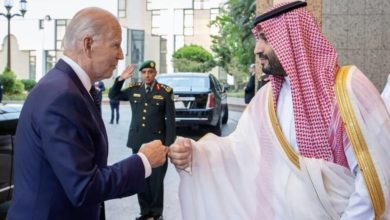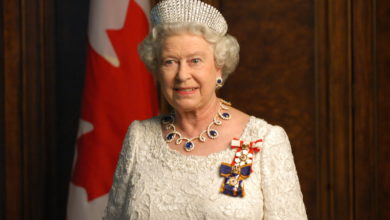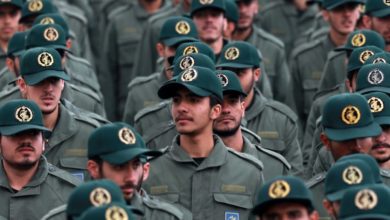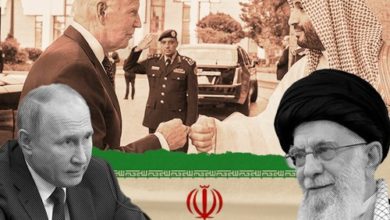On March 23, Iranian military vessels captured 14 British servicemen and one servicewoman in the Shatt al-Arab waterway. The river, called Arvandrood in Farsi, formed by the joining of the Euphrates and Tigris rivers, is approximately 125 miles long and its width ranges between 1,300 to 4,500 feet.
This is the second incident of its kind in recent years. In June 2004, six British marines and two sailors were arrested
|
Iran has maintained that the British forces were captured in Iranian waters and has questioned the motives of their operation. Britain has insisted that the sailors were well within Iraqi waters. Each day, Britain has come forward with more “evidence” in an effort to strengthen its position. On March 28, Britain declared that its forces had actually been 1.7 nautical miles inside Iraqi waters.
Yet, hours after the incident, the military commander of Iraq’s territorial waters made statements that strongly support the Iranian account. Brigadier General Hakim Jassim told AP Television News: “We were informed by Iraqi fishermen after they had returned from sea that there were British gunboats in an area that is out of Iraqi control. … We don’t know why they were there. And these British troops were besieged by unknown gunboats, I don’t know from where.”
Since it first appeared, this account of the location of the incident has not received much corporate media coverage.
This is not simply an incident in a border dispute between two neighboring countries. It is only due to the illegal invasion of Iraq—now in its fifth year—that Britain and Iran, two countries thousands of miles apart, could even have a border dispute. Iranian reaction to this incident must be viewed in the context of the overall role of British imperialism in the region.
The aggressive stance of Britain and United States in pursuit of regime change in Iran cannot engender optimism on the part of Iranian officials.
In June 2005, on the eve of Iranian elections, four bombs exploded in the Iranian city of Ahwaz. The city is located in the southwestern province of Khuzestan neighboring Iraq. While Khuzestan is home to a sizeable Arab population with a history of grievances against the oppression of the majority Persian population of Iran, bombings of this sort were unprecedented.
The Iranian government accused the British—occupiers of southern Iraq adjacent to Khuzestan—of having funded and armed the assailants.
British intervention in Iran
In the minds of Iranians, the name Britain is synonymous with colonial domination through force and cunning.
Up to mid 20th century, Iranian oil was entirely owned by the Anglo-Iranian Oil Company—the British oil company later renamed British Petroleum. In February 1951, threatened by a strong nationalization movement, Anglo-Iranian grudgingly agreed to allow 50 percent of the oil proceeds to go to Iranians. Mobilized mainly by the Tudeh Party, the Iranian communist party, a strong mass movement arose in support of oil nationalization.
In March 1951, the Majlis (parliament) voted to nationalize the oil. In April, Mohammad Mossadegh, a bourgeois-nationalist leader, was named prime minister. Mossadegh proceeded to implement the policy of oil nationalization, putting him on a collision course with the British.
The idea that Iranian oil should belong to Iranians repulsed British imperialism, so much so that they called for a worldwide embargo on Iranian oil. The United States and most other imperialists joined in.
The embargo created a deep economic crisis in Iran, which was at that time an extremely poor country with most of its resources plundered. Britain also filed a complaint with the World Court in The Hague and motioned to sanction Iran in the United Nations Security Council.
Mossadegh’s uncompromising stance made him immensely popular among the Iranian masses, however. He survived the economic crisis, attended the session of the U.N. Security Council session in New York where he passionately argued Iran’s case and defeated the British maneuvers. Ultimately, what Mossadegh could not survive was the U.S.-British coup of 1953.
With the British embassy shut down by Iran, Britain and the United States proceeded to bring down Mossadegh’s democratically elected regime. The U.S. Embassy in Tehran took the decisive role in planning, organizing and funding the coup.
Mossadegh was overthrown and Iran was forced to live under the brutal dictatorship of the Shah—a U.S. puppet—until the 1979 revolution. Anglo-Iranian recovered its ownership of Iranian oil facilities, although it lost its monopoly status. This change reflected the decisive role of the United States in the coup as well as the post World War II U.S. dominance in the imperialist world.
U.S. war games in the Persian Gulf
The recent arrest of the British military personnel does not come at a time of calm and tranquility.
As developments in the capture of the British sailors were unfolding, the United States launched war games in the Persian Gulf on March 27. The games were launched off the coast of Iran with the stated goal of demonstrating “the commitment of the U.S. to stability and security in the region,” in the words of Rear Adm. Kevin Quinn, commander of Strike Group Three. Fifteen warships led by the aircraft carriers USS John S. Stennis and the USS Dwight D. Eisenhower took part in the two-day exercise.
Recent military maneuvers conducted by Iran on Iranian territory and in Iranian waters have been widely interpreted by the U.S. corporate media as a sign of Iran’s aggressiveness in the region. The largest military maneuver by the largest U.S. naval presence in the Persian Gulf since the 2003 invasion of Iraq, however, is generally depicted as nothing more than a “security operation.”
The obvious intent of the Iranian military maneuvers is to prove that Iran is capable of defending itself against U.S. and British aggression, making them clearly defensive operations. The intent of the U.S. maneuvers, on the other hand, is to show Iran the consequences it could face if it continues along its path of defiance to imperialist dictates.
To take a hypothetical example, if the Iranian navy carried out war games off the coast of Florida, no media outlet would characterize it as a routine security operation aimed at promoting security in the Gulf of Mexico.
Ruling class propaganda has normalized military aggression by imperialist forces anywhere in the world as part of their imperialist prerogative. When national liberation movements, revolutionary governments or even nationalistic governments in oppressed countries put up any kind of a fight, their resistance is termed an “aggression.”
The current conflict between Britain and Iran should not be viewed as a conflict of equals over a possible technical violation of territorial waters. It cannot be understood divorced from history and the current relationship of forces in the Middle East.
Instead, it should be seen in the context of imperialist powers pressuring and threatening an oppressed country that is fighting for its survival against a far richer and more militarized adversary. In this context, it is clear that the occupying forces of Iraq are the real aggressors, whatever the exact coordinates of the British sailors at the time of their capture.







